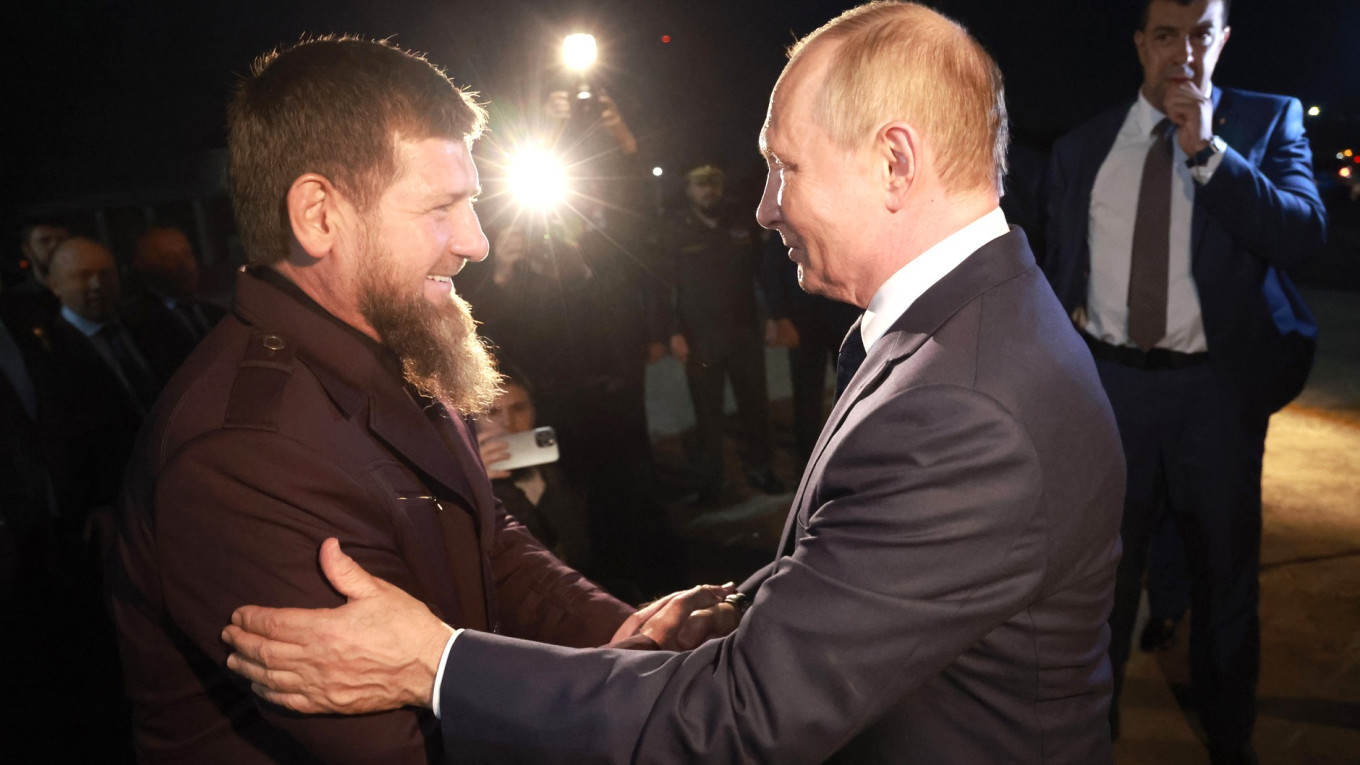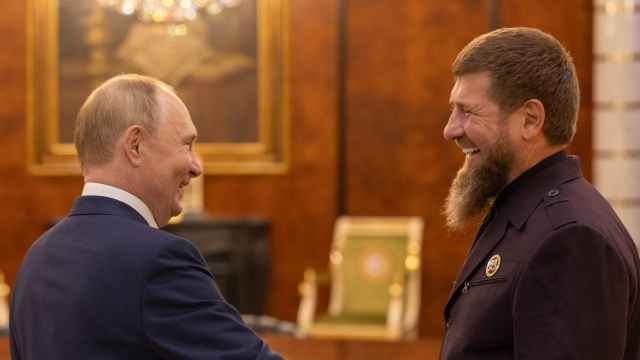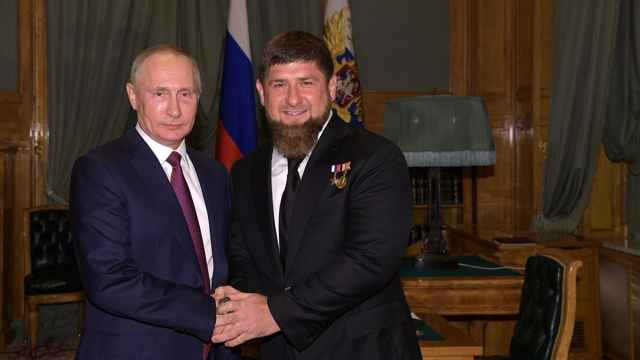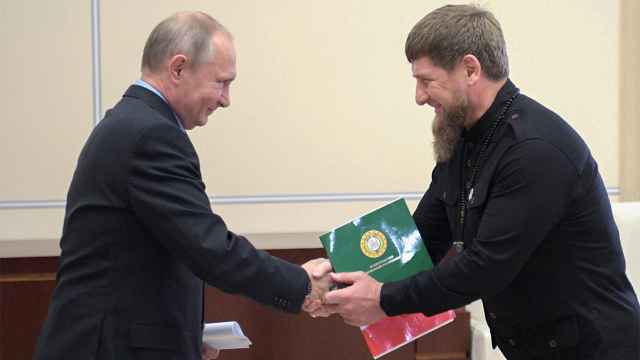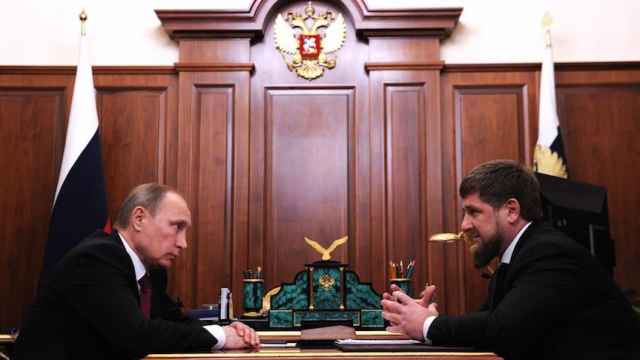Russian President Vladimir Putin flew into Chechnya on Tuesday and met its leader Ramzan Kadyrov on his first visit to the North Caucasus region since 2011.
Kadyrov, a key Kremlin ally, says he has deployed thousands of fighters to help the Kremlin with its Ukraine offensive.
Putin in May said that he planned to visit Chechnya on Kadyrov's invitation, saying "I will do everything possible for this trip to take place."
Footage posted by RIA Novosti news agency and Kadyrov showed Putin shaking hands with Kadyrov and other officials after alighting from his helicopter in the main city of Grozny.
Putin then put an arm around Kadyrov's shoulder and hugged him before they got into a limousine together.
Kadyrov wrote on Telegram that there would be a "packed program" of events.
"Vladimir Vladimirovich despite the hard working day is full of energy and ready to visit several places in Chechnya," he wrote.
Putin earlier Tuesday visited other North Caucasus regions including Kabardino-Balkaria and North Ossetia.
In North Ossetia, he visited the Beslan school where more than 330 people died in a 2004 siege by Chechen rebels and knelt at a memorial.
Putin also met mothers who lost their children and likened the attackers to Ukrainians now mounting an incursion in Russia's Kursk region.
While Putin has rarely visited Chechnya in recent years, the region has shaped him as a politician.
He launched the second Chechen war in 1999 while still prime minister, which helped define his strongman reputation and made him popular with many Russians.
Putin loyalist Kadyrov has ruled Chechnya with an iron fist, seeking to stamp out a lingering Islamist rebellion and any forms of dissent, and massively reconstructing Grozny.
Putin appointed Kadyrov as leader in 2007 when he was just 30, after his father Akhmat Kadyrov was assassinated by a bomb at a stadium in 2004.
On Tuesday, Putin began his visit by laying flowers at Akhmat Kadyrov's grave, Interfax news agency reported.
A Message from The Moscow Times:
Dear readers,
We are facing unprecedented challenges. Russia's Prosecutor General's Office has designated The Moscow Times as an "undesirable" organization, criminalizing our work and putting our staff at risk of prosecution. This follows our earlier unjust labeling as a "foreign agent."
These actions are direct attempts to silence independent journalism in Russia. The authorities claim our work "discredits the decisions of the Russian leadership." We see things differently: we strive to provide accurate, unbiased reporting on Russia.
We, the journalists of The Moscow Times, refuse to be silenced. But to continue our work, we need your help.
Your support, no matter how small, makes a world of difference. If you can, please support us monthly starting from just $2. It's quick to set up, and every contribution makes a significant impact.
By supporting The Moscow Times, you're defending open, independent journalism in the face of repression. Thank you for standing with us.
Remind me later.


